
-
 Mexican president hopes to talk with Trump to avoid tariffs
Mexican president hopes to talk with Trump to avoid tariffs
-
Angry Medvedev squanders four match points, crashes out in Dubai

-
 The risks of Trump tariffs encapsulated in a car key
The risks of Trump tariffs encapsulated in a car key
-
Ireland's Ringrose banned for Six Nations showdown against France

-
 King Charles III invites Trump for unprecedented second state visit
King Charles III invites Trump for unprecedented second state visit
-
Second day of health improvements for Pope Francis, reports Vatican
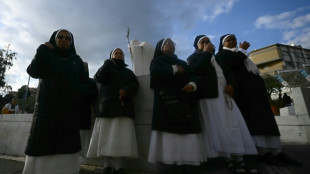
-
 Let me entertain you, says Duplantis
Let me entertain you, says Duplantis
-
Hungary will no longer 'tolerate' public Pride march

-
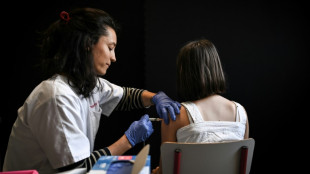 US study highlights success story of HPV vaccination
US study highlights success story of HPV vaccination
-
Trump tariffs pose challenge for Europe's carmakers

-
 UK's Starmer meets Trump to push for Ukraine guarantees
UK's Starmer meets Trump to push for Ukraine guarantees
-
Double-shift Sainz tops Bahrain F1 testing times

-
 Influencer Andrew Tate facing charges in Romania arrives in US
Influencer Andrew Tate facing charges in Romania arrives in US
-
Sinner dropped from Laureus awards list after doping ban

-
 Trump says China to face added 10% tariff starting in March
Trump says China to face added 10% tariff starting in March
-
Double-shift Sainz tops Bahrain testing times

-
 Toronto Pride says sponsors bolting over Trump's anti-DEI push
Toronto Pride says sponsors bolting over Trump's anti-DEI push
-
Explosions at M23 rally in east DR Congo kill at least 11

-
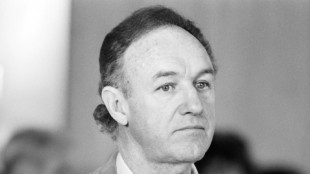 Hollywood giant Gene Hackman, wife found dead in 'suspicious' circumstances
Hollywood giant Gene Hackman, wife found dead in 'suspicious' circumstances
-
'So much anxiety': Trump migrant crackdown vow stirs fear in NY

-
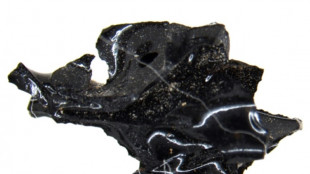 How did this man's brain turn to glass? Scientists have a theory
How did this man's brain turn to glass? Scientists have a theory
-
Accused of repression, Nicaragua's Ortega swears in hooded 'volunteer' force

-
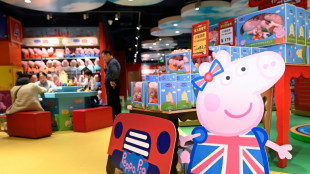 Peppa Pig to get new sibling
Peppa Pig to get new sibling
-
After 45 years, Palestinian prisoner freed from Israeli jail in latest swap

-
 In major shift, Ocalan calls for PKK to drop weapons, disband
In major shift, Ocalan calls for PKK to drop weapons, disband
-
Russia says annexation of Ukrainian land is 'non-negotiable'

-
 Seoul says North Korea has deployed more troops to Russia
Seoul says North Korea has deployed more troops to Russia
-
England lock Martin ruled out of rest of Six Nations

-
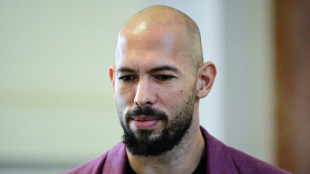 Influencer Andrew Tate facing charges in Romania leaves for US
Influencer Andrew Tate facing charges in Romania leaves for US
-
A French-UK nuclear umbrella for Europe? Not likely, say analysts

-
 Former African leaders launch debt relief drive for poor nations
Former African leaders launch debt relief drive for poor nations
-
Baby, you're a firework! Katy Perry to blast off into space
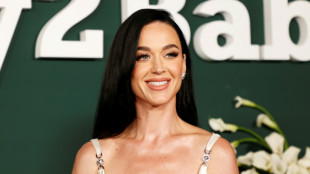
-
 EU will 'do the same' if US imposes tariffs hikes: French finance minister to AFP
EU will 'do the same' if US imposes tariffs hikes: French finance minister to AFP
-
UK's Starmer pushes Trump for Ukraine guarantees against Putin

-
 East DR Congo explosions kill at least 11
East DR Congo explosions kill at least 11
-
Israel sends negotiators after Hamas hands over hostage bodies

-
 European stock markets slide as Trump targets EU with tariffs
European stock markets slide as Trump targets EU with tariffs
-
Ocalan: Kurdish PKK founder who urged his fighters to disarm

-
 England's limp Champions Trophy exit underlines sharp decline
England's limp Champions Trophy exit underlines sharp decline
-
For Tour de France foreign starts are a money-spinner

-
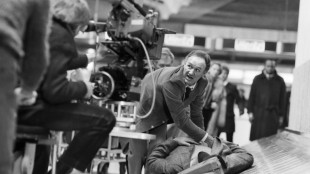 Hollywood giant Gene Hackman and wife found dead at home
Hollywood giant Gene Hackman and wife found dead at home
-
Legendary Irish trio to retire at end of Six Nations

-
 Hong Kong pro-democracy lawmaker jailed over 2019 mob attack
Hong Kong pro-democracy lawmaker jailed over 2019 mob attack
-
Russia says talks on annexed Ukrainian land 'non-negotiable'

-
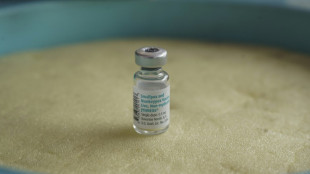 WHO decides mpox epidemic still global health emergency
WHO decides mpox epidemic still global health emergency
-
UN nature talks in 'end game' to break funding deadlock

-
 'No need to overthink': China Tesla fans unfazed by Musk politics
'No need to overthink': China Tesla fans unfazed by Musk politics
-
Marquez 'has fire inside again' ahead of MotoGP season opener

-
 Audi Brussels shuts down as Europe's auto woes deepen
Audi Brussels shuts down as Europe's auto woes deepen
-
Thailand deports dozens of Uyghurs to China


Ocalan: Kurdish PKK founder who urged his fighters to disarm
Abdullah Ocalan, the jailed founder of the militant Kurdistan Workers Party (PKK), is an icon to many Kurds, but a "terrorist" to many within wider Turkish society.
In a historic call on Thursday, Ocalan called for his PKK to be dissolved and its fighters to lay down their arms in a major step towards ending the decades-long conflict with the Turkish state.
Now 75, Ocalan has been held in solitary confinement since 1999 on Imrali prison island near Istanbul.
But since October, when Turkey tentatively moved to reset ties with the PKK, Ocalan has been visited three times by lawmakers from the pro-Kurdish opposition DEM party.
For most Turks, Ocalan is public enemy number one for his role in leading the PKK.
In 1978, he founded the group which six years later began an insurgency demanding independence and, more recently, broader autonomy in Turkey's mostly Kurdish southeast. Tens of thousands of people have died.
A Marxist-inspired group, it is blacklisted as a "terrorist" organisation by Turkey, the United States, the European Union and many other Western countries.
- An olive branch -
Attitudes began shifting in October when MHP leader Devlet Bahceli, a close ally of President Recep Tayyip Erdogan, offered Ocalan an olive branch if he would publicly renounce terror.
The next day, the former guerrilla who embodies the decades-long Kurdish rebellion, received his first family visit in four years.
He sent back a message saying he alone could shift the Kurdish question "from an arena of conflict and violence to one of law and politics" later offering assurances he was "ready to take the necessary steps and make the call".
Ankara's bid to reopen dialogue came just weeks before Syrian rebels overthrew Bashar al-Assad, upending the regional balance of power and once again thrusting Turkey's complex relationship with the Kurds into the spotlight.
- From village life to militancy -
Ocalan was born on April 4, 1949, one of six siblings in a mixed Turkish-Kurdish peasant family in Omerli, a village in Turkey's southeast.
His mother tongue is Turkish.
He became a left-wing activist while studying politics at university in Ankara, and was first jailed in 1972.
He set up the PKK six years later, then spent years on the run, launching the movement's armed struggle in 1984.
Taking refuge in Syria, he led the fight from there, causing friction between Damascus and Ankara.
Forced out in 1998, he moved from Russia to Italy to Greece in search of a haven, ending up at the Greek consulate in Kenya, where US agents got wind of his presence and tipped off Turkey.
He was arrested on February 15, 1999 after being lured into a vehicle in a Hollywood-style operation by Turkish security forces.
Sentenced to death, he escaped the gallows when Turkey started abolishing capital punishment in 2002, living out the rest of his days in isolation on Imrali prison island in the Sea of Marmara near Istanbul.
For many Kurds, he is a hero whom they refer to as "Apo" (uncle). But Turks often call him "bebek katili" (baby killer) for his ruthless tactics, including the bombing of civilian targets.
- Jailed but still leading -
With Ocalan's arrest, Ankara thought it had decapitated the PKK. But even from his cell he continued to lead, ordering a ceasefire that lasted from 1999 until 2004.
In 2005, he ordered followers to renounce the idea of an independent Kurdish state and campaign for autonomy in their respective countries.
Tentative moves to resolve Turkey's "Kurdish problem" began in 2008, and several years later, Ocalan became involved in the first unofficial peace talks when Erdogan was prime minister.
Led by then spy chief Hakan Fidan -- who is now foreign minister -- the talks raised Kurdish hopes for a solution with their future within Turkey's borders.
But the effort collapsed in July 2015, sparking one of the deadliest chapters in the conflict.
The government has defended its de facto silencing of Ocalan, saying he failed to convince the PKK of the need for peace.
Seen as the world's largest stateless people, Kurds were left without a country when the Ottoman Empire collapsed after World War I.
Although most live in Turkey, where they make up around a fifth of the population, the Kurds are also spread across Syria, Iraq and Iran.
Turkey's wide-scale use of combat drones has pushed most Kurdish fighters into northern Syria and Iraq, where Ankara has continued its raids.
E.Schubert--BTB
